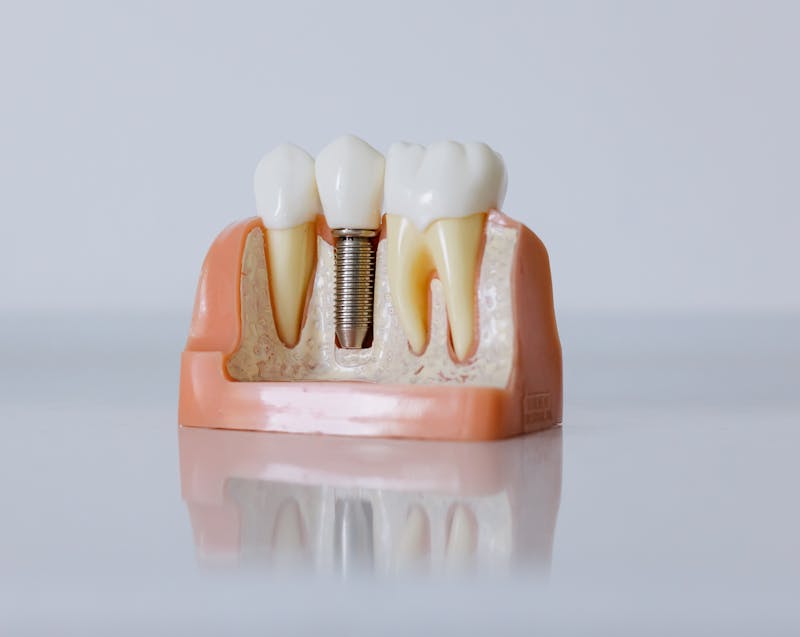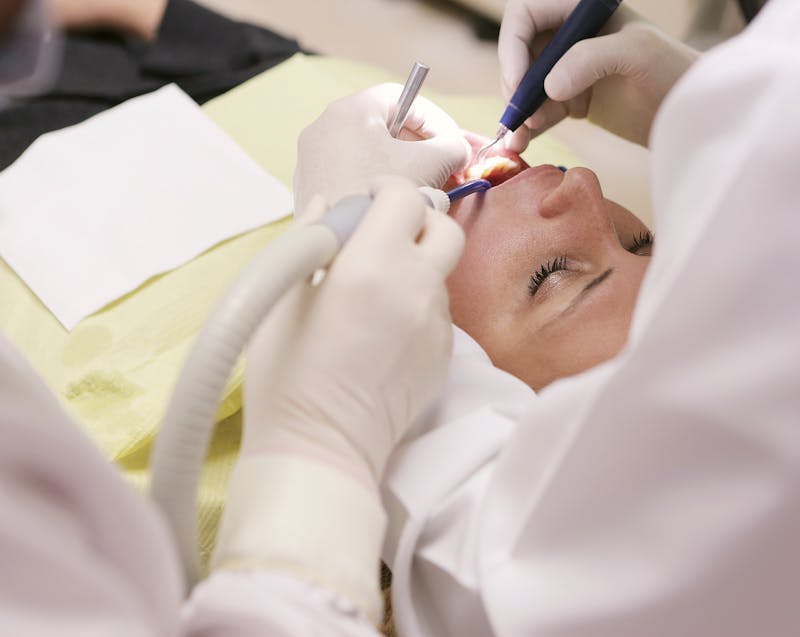
- Always verify your dentist’s training, experience, and implant success rate before proceeding with treatment.
- Ask for details about the type of implants, materials used, and the technology involved in planning and placement.
- Request a clear explanation of the full procedure, including healing time, aftercare, and potential risks.
- Ensure you receive a transparent cost breakdown that includes all stages of treatment and any additional fees.
- Choose a trusted dentist for implant dentistry who communicates openly, provides patient-centered care, and prioritizes long-term oral health.
- Follow your dentist’s post-surgery instructions and maintenance advice to ensure the longevity of your dental implants.
Getting dental implants is one of the most rewarding investments you can make for your oral health, confidence, and quality of life. Implants not only restore your smile but also prevent bone loss and maintain the natural structure of your jaw. However, the success of your dental implant treatment largely depends on the expertise, transparency, and ethics of your chosen dentist. Before committing to the procedure, it’s essential to have an open conversation with your dental professional. Asking the right questions will help you find a trusted dentist for implant dentistry who can ensure safe, successful, and long-lasting results.
Below are the most important questions to ask before proceeding with dental implant treatment, along with detailed explanations and insights to help you make an informed decision.
Understanding Dental Implants: Why Choosing the Right Dentist Matters
Dental implants are tiny, durable posts—typically crafted from titanium or zirconia—that are surgically placed into the jawbone to serve as artificial roots for replacement teeth. These implants create a stable and permanent base, helping new teeth function, feel, and appear just like natural ones. Since the process requires precise surgical technique and careful planning, it’s essential that it be carried out by an experienced and qualified dental professional.
A trusted dentist for implant dentistry will thoroughly assess your oral health, bone structure, and medical background before proposing any treatment. Working with an experienced and reputable dentist helps reduce the risk of complications such as infection, nerve injury, or implant failure, ensuring you receive personalized, safe, and effective care.
1. What Qualifications and Experience Do You Have with Dental Implants?
The first and most important question to ask concerns your dentist’s background and level of expertise in implant dentistry. Implant placement is a surgical procedure that requires specialized training beyond general dental education.
Here’s what to look for when evaluating a dentist’s qualifications:
- Education and certifications: Ask if the dentist has completed advanced courses or holds certifications in implantology. Specialized training ensures they understand both the surgical and restorative aspects of implants.
- Experience level: Find out how many implant cases the dentist has successfully completed. Dentists with years of experience and numerous implant placements tend to have refined techniques and higher success rates.
- Professional affiliations: Membership in professional dental organizations often indicates a commitment to continuing education and adherence to high ethical standards.
- Case examples: Request to see before-and-after photos or patient testimonials. Real cases demonstrate consistency in results and patient satisfaction.
An experienced and transparent dentist will have no hesitation sharing their credentials and examples of past work.
2. What Type of Dental Implants and Materials Do You Use?

Not all implants are created equal. The type and material of the implant can significantly impact durability, aesthetics, and compatibility with your body.
Ask your dentist about:
- Implant material: Titanium is the most common choice due to its strength and biocompatibility. Zirconia implants are a metal-free alternative preferred for patients with allergies or for aesthetic reasons.
- Implant system or brand type: While you shouldn’t fixate on brand names, understanding whether your dentist uses FDA-approved or scientifically backed systems is vital.
- Customization: A good dentist will select implants based on your bone density, gum condition, and bite alignment rather than taking a one-size-fits-all approach.
- Longevity and warranty: Inquire about the lifespan of the chosen implant and whether the clinic offers a guarantee for the implant or crown.
A reliable and experienced dentist uses only proven materials supported by long-term clinical studies.
3. What Is the Step-by-Step Process for Getting Implants?
Understanding the procedure helps reduce anxiety and ensures you know what to expect. A transparent dentist will clearly explain every stage of your treatment, from diagnosis to final restoration.
Here’s an overview of a typical implant process:
- Initial consultation: The dentist evaluates your oral health, takes X-rays or 3D scans, and discusses your treatment goals.
- Treatment planning: Customized plans are developed based on jawbone condition, tooth placement, and desired results.
- Surgical phase: The implant post is surgically inserted into the jawbone. Depending on the case, a temporary crown may be placed.
- Healing and osseointegration: Over the next few months, the implant fuses with the bone, creating a stable foundation.
- Abutment and crown placement: Once healing is complete, the abutment (connector) and final crown are attached.
You should also ask:
- How many appointments are required?
- Who performs the surgery—your dentist or a referred specialist?
- How long does the entire process take?
A dentist who explains the process thoroughly demonstrates professionalism and respect for patient comfort.
4. What Technology Do You Use for Planning and Placement?
Advanced technology is crucial for precision, comfort, and predictability. Modern implant dentistry relies on digital imaging and guided surgery to reduce risks and improve accuracy.
Ask your dentist whether they use:
- 3D cone beam computed tomography (CBCT): This imaging system provides detailed views of your bone, nerves, and sinus areas, enabling precise planning.
- Digital impressions: These replace traditional molds and allow for more accurate crown design.
- Computer-guided implant surgery: This technique uses virtual simulations to determine optimal implant positioning before surgery.
- Laser-assisted tools: Lasers can help with gum contouring or sterilization during surgery for less pain and faster recovery.
A trusted dentist for implant dentistry who invests in these technologies demonstrates a commitment to safety, efficiency, and patient satisfaction.
5. How Do You Handle Complications or Implant Failures?
Even with high success rates, no surgical procedure is entirely risk-free. What sets a competent dentist apart is their preparedness to manage complications if they occur.
You should ask:
- What is your implant success rate?
- What are the most common complications you encounter?
- What steps do you take to prevent infection or implant failure?
- What is your policy if an implant fails?
Potential complications include infection, insufficient bone integration, or damage to surrounding structures. A dentist should discuss these risks openly and outline contingency plans. Transparency and preparedness are hallmarks of a trustworthy practitioner.
6. What Is the Total Cost, and What Does It Include?
Dental implants can be a significant financial investment, and costs vary widely depending on materials, procedures, and clinic location. Always ask for a detailed cost breakdown.
A comprehensive treatment plan should include:
- Consultation and diagnostics: X-rays, scans, and impressions.
- Surgery and implant parts: The post, abutment, and crown.
- Anesthesia or sedation (if applicable).
- Follow-up visits and maintenance appointments.
Also ask:
- Are there payment plans or financing options?
- Will insurance cover any part of the procedure?
- Are there potential additional costs later on (e.g., bone grafting or sinus lifts)?
A reputable dentist provides transparent pricing and ensures you understand what’s included before treatment begins.
7. What Should I Expect During Recovery and Aftercare?
Recovery is a vital phase that determines the long-term success of your implants. Healing times vary, but patients typically resume normal activities within a few days to a week.
Ask your dentist for detailed recovery guidance, including:
- Pain management: What medications or remedies will help relieve discomfort?
- Dietary recommendations: Soft foods are essential for the first few days. Avoid hard, sticky, or spicy foods until cleared by your dentist.
- Oral hygiene instructions: Proper cleaning around the surgical site prevents infection.
- Follow-up schedule: Regular checkups ensure the implant integrates properly.
- Warning signs: Know when to contact your dentist (e.g., excessive swelling, bleeding, or persistent pain).
A responsible dentist ensures thorough aftercare support and patient education before you leave the clinic.
8. How Long Will My Dental Implants Last, and What Maintenance Is Required?
One of the biggest advantages of dental implants is their longevity—many can last a lifetime with proper care. However, the lifespan of implants depends on several factors, including oral hygiene and lifestyle habits.
Ask your dentist:
- How long do your implants typically last?
- What kind of maintenance is required?
- How often should I schedule checkups?
- What habits can damage my implants?
To extend implant longevity, follow these best practices:
- Brush twice daily with a soft-bristled toothbrush and non-abrasive toothpaste.
- Floss carefully using implant-safe floss or interdental brushes.
- Visit your dentist for regular cleanings and examinations.
- Avoid smoking and excessive alcohol consumption, which can delay healing and weaken bone structure.
A reliable dentist emphasizes preventive care and personalized maintenance advice to ensure lasting results.
9. Are Dental Implants Right for Me?

Not everyone is an ideal candidate for implants. Your dentist should evaluate whether your jawbone and gums can support the procedure.
Ask about:
- Bone density: Adequate bone is necessary to anchor implants securely.
- Gum health: Healthy tissue ensures proper healing and aesthetic results.
- Medical history: Conditions like diabetes or autoimmune diseases can affect healing.
- Lifestyle factors: Smoking or poor oral hygiene may increase failure risk.
If implants aren’t suitable, a responsible dentist will discuss alternatives such as bridges or dentures. The goal is to prioritize your oral health—not just perform a procedure.
10. Can You Provide Patient References or Testimonials?
Hearing from past patients offers reassurance and helps you gauge satisfaction and quality of care. A trusted dentist should be comfortable sharing testimonials or case studies.
You can ask for:
- Written or video testimonials.
- Before-and-after photos of similar cases.
- Case studies detailing complex or successful implant procedures.
Positive feedback from other patients often reflects professionalism, empathy, and reliable results.
Building Trust and Confidence Through Communication
Finding a dentist who prioritizes patient education and open communication makes all the difference. Asking these questions not only helps you understand the procedure but also builds trust and confidence in your dental care provider.
When searching for a trusted dentist for implant dentistry, look for one who:
- Offers a clear explanation of treatment options.
- Uses advanced diagnostic and surgical technology.
- Provides comprehensive aftercare and follow-up.
- Maintains honesty about costs, risks, and outcomes.
Your dental implant journey should never feel rushed or uncertain. A trustworthy dentist will guide you patiently, address your concerns, and ensure that your treatment plan aligns with your long-term oral health goals.
Conclusion: Empower Yourself with the Right Questions
Dental implants can restore not only your smile but also your confidence, comfort, and quality of life. However, the success of the procedure depends heavily on choosing the right professional. By asking these essential questions, you can make an informed choice and ensure your treatment is in the hands of a skilled, transparent, and compassionate dental expert.
Ultimately, your journey to a healthier smile begins with trust. Taking the time to find an experienced and honest dental professional ensures your implants look natural, feel comfortable, and last for decades. Whether you’re just starting to explore your options or preparing for your consultation, being informed is the first step toward a successful implant experience and a confident new smile.


